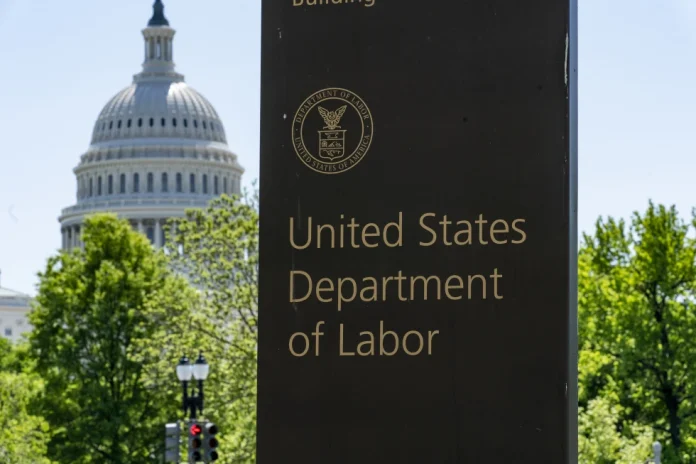

A new 16-page issue brief by the Joint Center for Political and Economic Studies warns that federal industrial policy investments aimed at advancing economic opportunity for Black communities are under threat, as the Trump administration eliminates key diversity, equity, and inclusion (DEI) provisions and slows the disbursement of funding.
Authored by policy analyst Dr. Gabrielle Smith Finnie, the report, “Shifting the Narrative on Industrial Policy: Opportunities for Genuine Economic Mobility and Good Jobs for Black Communities,” examines how recent federal investments—through the Infrastructure Investment and Jobs Act (IIJA), CHIPS and Science Act, and Inflation Reduction Act (IRA)—offered a historic opportunity to increase Black access to “good jobs” in high-growth industries like manufacturing, clean energy, and technology.
“These investments offer a window to increase Black workers’ access to ‘good jobs’—jobs that offer family-sustaining wages, benefits, wraparound supports, and career advancement opportunities,” Dr. Smith Finnie wrote.
The IIJA, signed into law in 2021, authorized $1.2 trillion to modernize roads, bridges, and broadband infrastructure. The CHIPS and Science Act of 2022 invested $280 billion to strengthen the semiconductor industry and build a skilled workforce. The IRA, also passed in 2022, used tax credits and grants to support clean energy projects, particularly in low-income areas and communities harmed by pollution.
The report notes that these laws included intentional equity components—such as labor protections, apprenticeship incentives, environmental justice programs, and wraparound workforce services—but many of those components are now being rolled back or underfunded.
“In 2025, the Trump administration eliminated many of the diversity, equity, and inclusion initiatives in industrial policy legislation,” the report states. “Currently, significant funding is being slowly dispersed, paused, or clawed back, impacting the economic mobility of Black workers.”
According to the Joint Center, the programs have already reached over 99 percent of high-poverty counties. Cities with large Black populations, including Baltimore, Augusta, New Orleans, and Raleigh, were among those set to receive millions to improve infrastructure and launch workforce development hubs through community colleges.
In Detroit, IIJA funding is being used for the I-375 Community Reconnection Project to reconnect two historically Black neighborhoods severed by highway construction. Under the CHIPS Act, the Department of Commerce awarded $184 million to six Recompete Pilot Program finalists, including $20 million to Reinvest Birmingham, which is scaling up workforce development and transportation access to reduce the city’s high Black unemployment rate.
The IRA directed approximately $55 billion to reduce local pollution and support environmental justice efforts. Seventy percent of clean energy investments under the law have been in counties with lower employment rates, 78 percent in areas with below-median household incomes, and 86 percent in regions with below-average college graduation rates.
In Prince George’s County, Maryland, a majority-Black jurisdiction, ten communities will receive $20 million through the Environmental and Climate Justice Program to support climate resilience, reduce energy costs, and grow a clean energy workforce.
Despite these investments, the Joint Center found that many Black-led and Black-allied organizations remain under-informed and under-resourced. A foundational network of eight such organizations participated in the project, with 60 percent engaged in federal policy. Yet most expressed unfamiliarity with the industrial policy agenda and cited barriers, including limited staff, insufficient technical support, and a lack of targeted outreach.
Participants had applied for broadband grants and climate-related funding but struggled to navigate the complex process or receive adequate guidance. To address these gaps, the Joint Center hosted virtual sessions with policy experts from academia and the Biden administration, providing opportunities to learn about funding pathways, federal priorities, and equity initiatives.
The report provides a set of messaging principles for Black-led and Black-allied organizations, including the importance of highlighting Black workers’ economic contributions, addressing historic exclusion from skilled trades, and advocating for place-based investments and better data tracking. “Industrial policy must ensure our communities have clear access to good jobs, high wages, and meaningful training opportunities,” the report states.
It also calls on funders to support Black-led research, researchers to track equity outcomes, employers to implement fair hiring and advancement practices, and training providers to build accessible career pathways in technology and manufacturing.
“Funding and workforce development opportunities must be accessible for Black workers and Black-led and allied organizations,” the brief states. “Defunding industrial programs now would reduce opportunities for Black workers to thrive and take part in the industrial sector before these initiatives take root.”
About Stacy M. Brown, NNPA Senior National Correspondent
Stacy M. Brown is Senior National Correrspondent for the National Newspaper Publishers Association's (NNPA) BlackPress USA. NNPA is the trade association of the more than 200 Black-owned community newspapers in America. He is the co-author of Blind Faith: The Miraculous Journey of Lula Hardaway and her son, Stevie Wonder (Simon & Schuster) and Michael Jackson: The Man Behind The Mask, An Insider's Account of the King of Pop (Select Books Publishing, Inc.)








